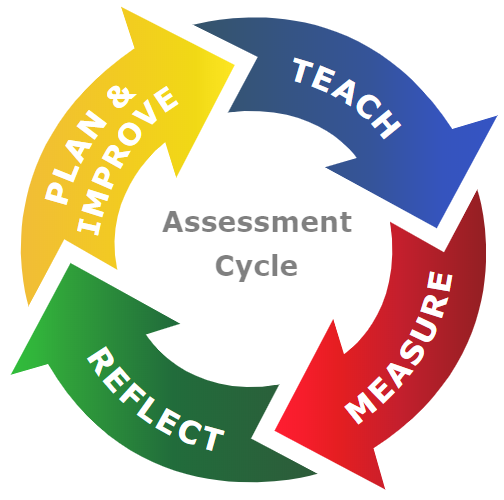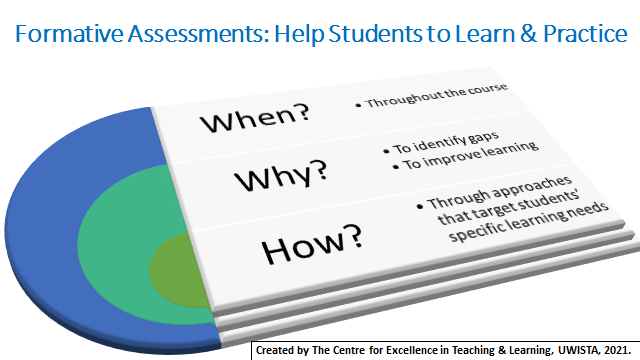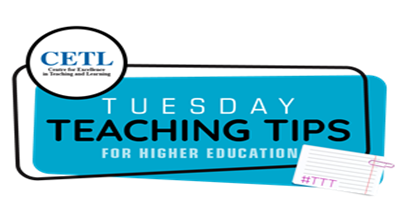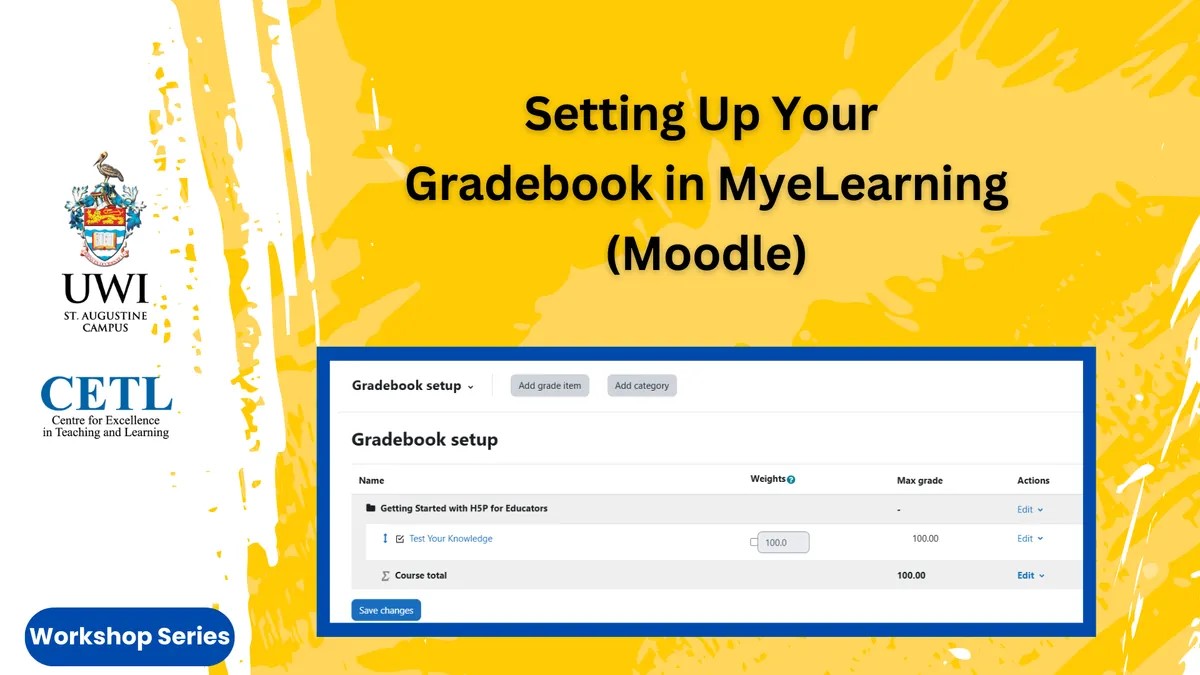Good day Colleagues,
We are currently in our mid-semester/mid-term season, navigating the assessment cycle of in-course assessments, grading and feedback. Navigating this can sometimes be a stressful or anxiety-ridden experience for both you and your students. To mitigate against this, we are happy to provide you with the necessary training and support along the way through our webinars, YouTube Channel, and even via this blog site. In our previous installments of #TTT for the semester thus far, we have explored topics such as:
-
MyeLearning Access and Support
-
Myelearning, Resources, Activities and Universal Design for Learning (UDL)
-
Universal Design for Learning (UDL) and H5P
-
Active Learning and myeLearning Activities
-
SECTIONS for Technology Selection
-
Research and the Power of Artificial Intelligence (AI)
As we continue with our mid-term assessment season, we would like to explore formative assessments and the myeLearning GradeBook.
A – Formative Assessments

Formative assessments and feedback occur during the semester (e.g. mid-term assessments), and therefore provide insight to your students’ learning while they are still in the course. The goal of formative assessment is to monitor students’ learning and provide ongoing feedback that allows:
-
You to Improve Your Teaching by:
-
Helping to identify learning gaps or misconceptions
-
Adapting your instructions and activities/approaches to meet students’ learning needs
-
Providing timely feedback to the learners, and
-
-
Students to improve their learning by:
-
Increasing engagement and retention
-
Reflecting on feedback provided and
-
Setting learning goals to realistically improve their weak areas.
-
Alleviating the anxiety often associated with high-stakes, end-of-term examinations/tests.
-
Otherwise known as assessments for learning, formative assessments are usually low stakes (not too heavily weighted), and alert you to students’ weak/problem areas which you can address immediately. In so doing, formative assessments provide you with opportunities to make surface-level adjustments to your instructions (e.g. to review a course topic/issue your students may be struggling to understand or master) from which they can benefit. Additionally, formative assessments and feedback help students to recognize their strengths and weaknesses and target areas that need work/attention.

B – The myeLearning GradeBook & Additional Resources.
Most courses comprise more than one course work or formative assessments that are weighted differently. Calculating students’ marks in all of these assessments and providing an accurate overall course grade for each student before uploading the same into the Banner site can become quite onerous for you as the course facilitator and/or coordinator/administrator. The myeLearning GradeBook provides assistance in this regard, as it allows you to easily input and distribute grades for your students. The grades can be calculated as points, percentages, pass/fail/incomplete depending on each students’ performance during the course. The Gradebook also allows formative assessments to be organized into groups for weighting as well.
Click Here to Register for this Webinar
The CETL is happy to announce its upcoming webinar Setting Up Your Gradebook in myeLearning (MOODLE). Scheduled for Tuesday March 11th 2025 at 10:00 AM, this hands-on workshop will guide educators through the process of setting up and customizing their Moodle Gradebook to align with their course assessment structure. Whether you’re new to MyeLearning (Moodle) or looking to refine your grading setup, this workshop will provide practical tips to streamline your assessment process and enhance transparency for students.
This session focuses on:
-
Navigating the Moodle Gradebook interface
-
Setting up the gradebook
-
Configuring assignment categories and weightings
-
Adding graded activities
-
Input and edit grades manually
We hope the aforementioned resources are helpful.
Should you need any further assistance, please feel free to contact us.
Regards,
The Centre for Excellence in Teaching & Learning (CETL),
The University of the West Indies (UWI),
St. Augustine.


